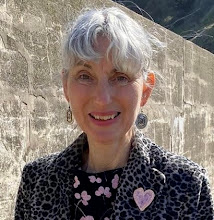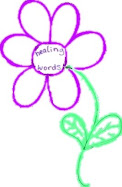Brazil and Iemanja
Yemanja is an orisha, originally of the Yoruba religion, who has become prominent in many Afro-American religions. Africans from what is now called Yorubaland brought Yemaya/Yemoja and a host of other deities/energy forces in nature with them when they were brought to the shores of the Americas as captives. She is the ocean, the essence of motherhood, and a protector of children.
The Great Ocean
Pablo Neruda
(first stanza)
If, of your gifts and your destructions, Ocean, into my
hands
you could deliver one part, one fruit, one ferment,
I would choose your remote repose, your lines of steel,
your vastness watched over by the air and night,
with the energy of your white language
smashing and overturning its own columns
in its purifying acts of demolition.
The Umbanda religion worships Iemanjá
as one of the seven orixás of
the African Pantheon. She is the Queen of the Ocean, the patron
deity of the fishermen and the survivors of shipwrecks, the feminine principle
of creation and the spirit of moonlight. A *syncretism happens between the
catholic Nossa Senhora dos Navegantes (Our Lady of the Seafaring) and the orixá Iemanjá of the African Mythology.
In Salvador, Bahia, Iemanjá is celebrated by Candomblé on the same day
consecrated by the Catholic Church to Our Lady of Seafaring (Nossa Senhora dos
Navegantes). Every
February 2, thousands of people line up at dawn to leave their offerings at her
shrine in Rio Vermelho.
Offering to
Iemanjá
Small boat with Iemanjá image, flowers and gifts
Small boat with Iemanjá image, flowers and gifts
Gifts for Iemanjá usually
include flowers and objects of female vanity (perfume, jewellery, combs,
lipsticks, mirrors). These are gathered in large baskets and taken out to the
sea by local fishermen. Afterwards a massive street party ensues.
We looked at the idea of offering gifts to a sea goddess. Sending her off with nice warm blankets, lavender pillows, hot drinks, lipstick that the fishes might want to borrow .....
A last word to Neruda who was fascinated by the power of the sea.
The Sea
Pablo Neruda
(translated from the Spanish by Mark Eisner)
One single being, but there’s no blood.
One single caress, death or rose.
The sea comes and reunites our lives
and attacks and divides and sings alone
in night and day and man and creature.
The essence: fire and cold: movement.
Pablo Neruda
Ode to the Sea
(Extract)
Here on the island
the sea
and so much sea
overflowing,
relentless,
it says yes, then no,
then no, no, no,
then yes, in blue,
in foam, with gallops,
it says no, again no.
It cannot stay still,
my name is sea, it repeats
while slamming against rocks
but unable to convince rocks,
then
with seven green tongues
of seven green dogs,
of seven green tigers,
of seven green seas,
it smothers rocks, kisses rocks,
drenches rocks
and slamming its chest,
repeats its name.
O sea, you declare yourself,
O comrade ocean,
with seven green tongues
of seven green dogs,
of seven green tigers,
of seven green seas,
it smothers rocks, kisses rocks,
drenches rocks
and slamming its chest,
repeats its name.
O sea, you declare yourself,
O comrade ocean,









No comments:
Post a Comment